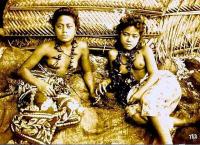Founder and abbot of Tibetan Buddhist monastery in Scotland ruthlessly killed for money by Tibetans in China
Dr Choje Akong Rinpoche, the founder and abbot of the Samye Ling Tibetan Buddhist monastery in Scotland, has reportedly been “assassinated” in south west China.
Akong, 73, who had lived in Britain since 1963, founded co-Samye Ling in 1967 in a former nurses' home in Eskdalemuir, Dumfries and Galloway. It was the first TibetanBuddhist monastery in the West, and is home to a community of around 60 monks and lay-people.
A statement from police in the Chinese city of Chengdu said Choje Akong Rinpoche, his nephew and his driver were killed in a residential area.
It said three suspects - all Tibetan - had stabbed the men to death in a dispute about money.
A statement posted on the Samye Ling website by Akong’s brother Lama Yeshe Rinpoche said: “To all dear friends of Samye Ling and Choje Akong Rinpoche, I am very, very sorry to inform you all that tragically, my brother Choje Akong Rinpoche, my nephew and one monk who was travelling with then, were all assassinated in Chengdu today."
“Rinpoche’s body has been taken to hospital where a post mortem will be carried out. That is all the news I have so far. If I receive further news I will let you know.”
Akong fled from Tibet into India in 1959, following the Chinese occupation of the country. But in recent years he had established unusually good relations with the Chinese government, and was able to travel in the country supervising schools and medical programmes that had been established by his charity The ROKPA Foundation. He was on a visit to these projects when he was killed.
Akong had played a key part in one of the most controversial episodes in Tibetan Buddhism in recent years. In 1992, he led the search party that brought a seven-year-old boy Apo Gaga from his home in a nomad’s tent in Eastern Tibet to Tsurphu monastery, near Lhasa, where with the permission of the Chinese authorites, he was enthroned as the 17th Karmapa, Urgyen Trinley Dorje - the second most important figure after the Dalai Lama in the Tibetan Buddhist hierarchy.
In 2000, at the age of 14, the Karmapa escaped from Tibet into India, when it became apparent the Chinese would not allow him to receive his lineage teachings and had designs to use him as a political “puppet”.
In a statement from Gyuto monastery, near Dharamsala, the Karmapa said: “Akong Tulku has been my friend from the time I was seven. A social activist, he showed great kindness to Tibet by founding schools and hospitals, printing old texts, and helping many people. Thus I am shocked to hear that he along with two others has been taken from us so suddenly.”
The Foreign Office said: "We can confirm the death of a British national in Chengdu, China on 8th October and we stand ready to provide consular assistance."
Akong, 73, who had lived in Britain since 1963, founded co-Samye Ling in 1967 in a former nurses' home in Eskdalemuir, Dumfries and Galloway. It was the first TibetanBuddhist monastery in the West, and is home to a community of around 60 monks and lay-people.
A statement from police in the Chinese city of Chengdu said Choje Akong Rinpoche, his nephew and his driver were killed in a residential area.
It said three suspects - all Tibetan - had stabbed the men to death in a dispute about money.
A statement posted on the Samye Ling website by Akong’s brother Lama Yeshe Rinpoche said: “To all dear friends of Samye Ling and Choje Akong Rinpoche, I am very, very sorry to inform you all that tragically, my brother Choje Akong Rinpoche, my nephew and one monk who was travelling with then, were all assassinated in Chengdu today."
“Rinpoche’s body has been taken to hospital where a post mortem will be carried out. That is all the news I have so far. If I receive further news I will let you know.”
Akong fled from Tibet into India in 1959, following the Chinese occupation of the country. But in recent years he had established unusually good relations with the Chinese government, and was able to travel in the country supervising schools and medical programmes that had been established by his charity The ROKPA Foundation. He was on a visit to these projects when he was killed.
Akong had played a key part in one of the most controversial episodes in Tibetan Buddhism in recent years. In 1992, he led the search party that brought a seven-year-old boy Apo Gaga from his home in a nomad’s tent in Eastern Tibet to Tsurphu monastery, near Lhasa, where with the permission of the Chinese authorites, he was enthroned as the 17th Karmapa, Urgyen Trinley Dorje - the second most important figure after the Dalai Lama in the Tibetan Buddhist hierarchy.
In 2000, at the age of 14, the Karmapa escaped from Tibet into India, when it became apparent the Chinese would not allow him to receive his lineage teachings and had designs to use him as a political “puppet”.
In a statement from Gyuto monastery, near Dharamsala, the Karmapa said: “Akong Tulku has been my friend from the time I was seven. A social activist, he showed great kindness to Tibet by founding schools and hospitals, printing old texts, and helping many people. Thus I am shocked to hear that he along with two others has been taken from us so suddenly.”
The Foreign Office said: "We can confirm the death of a British national in Chengdu, China on 8th October and we stand ready to provide consular assistance."
libidopter - 9. Okt, 17:25


